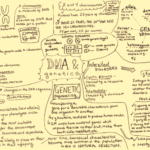Subject Decisions for Career Choices
While the pressure on students aged 16-18 to make career decisions has never been greater, new research undertaken by Justin Craig has revealed that most of us aren’t in the jobs we thought we wanted to do at that age.
Many of us do not know what we want to do when we finish education – let alone when we’re halfway through. In our study, 15% of those surveyed claimed they didn’t know what job they wanted to do when they finished their GCSEs. And those who did know what they wanted often rethought their choice as a result of experience and exposure to different opportunities, as evidenced by the 23% of respondents who stated they had changed their minds about the career they chose initially.
Guidance & Support
In our survey, over two thirds of respondents were not in the job they thought they wanted to do when they finished school. Career guidance/support seems to be partly to blame for this, with 17% of respondents stating they didn’t have enough education support to gain entry into their dream profession. These days, however, students have access to a vast range of resources. In fact, many argue that students find the vast variety of career options quite over- whelming and confusing.
Interestingly, further education doesn’t seem to make much difference to the numbers of people changing career direction; in our survey, 68% of graduates stated that they are not working in the career they had set out pursuing.
So what does this mean for 16-18 year olds facing exams this summer and/or making decisions about A Level subjects, further education and career options?
With one in ten of our respondents saying they didn’t actually enjoy the subject associated with their selected career , the importance of making A Level choices based on enjoyment is clear. Whilst it’s important to check that subject choices are appropriate for any particular University courses or apprenticeship opportunities being considered, a student is likely to achieve better exam results in subjects that they enjoy.
When it comes to career and University choices, GCSE results are increasingly important as, in the absence of AS exams, many Universities are placing more importance on GCSEs when making University offers.
For students trying to work out what they want to do after they leave school, getting some hands- on experience or opportunities to talk to people who work in the areas of interest can help. For time pressured students, taster days run by Universities and Specialist/Industry Organisations can be really useful and a good use of time.
Final piece of advice
Students need to remain open minded and adaptable .Whilst some students will identify and be successful in pursuing their preferred career, the majority of people are happy to shift direction at one or more points in their life for a variety of reasons. This is supported by our survey results , in which 51% of respondents stated that they are “on their way to their desired/dream job” .
So for students making decisions this year, the overall message is to focus on your exams as good results will give you the broadest range of career choices. However, don’t be despondent in the event of disappointing exam results as there are lots of other exciting and interesting career options available.
Career Choice Flexibility
Paul Stevens at Justin Craig says “It’s interesting to see these results, as there is so much pressure on young adults picking their career at 16 years old. The results show that there is plenty of flexibility for career changes at any stage”.
“Of course, people change their minds once they try things or circumstances change, however as seen in the results, many stated they would have benefitted with more help, knowledge and resources, or were shown the true financial benefits relating to the role.”
For details on how to boost exam grades to take the career path you would like, click here










 See More Genuine Reviews
See More Genuine Reviews